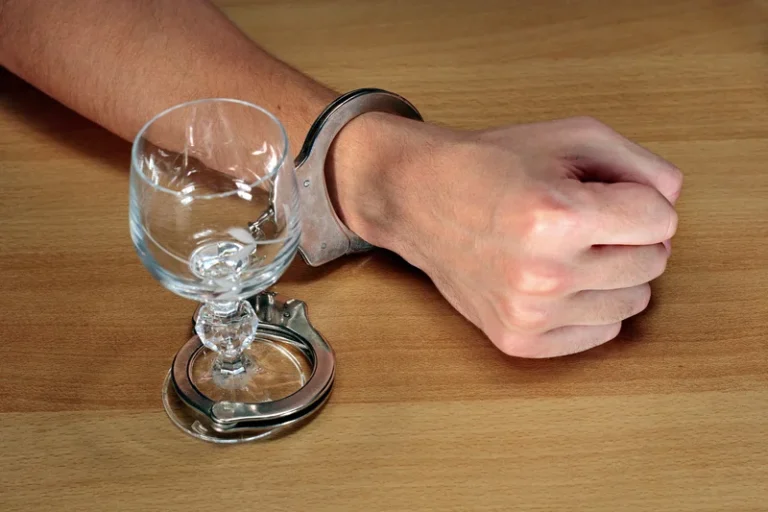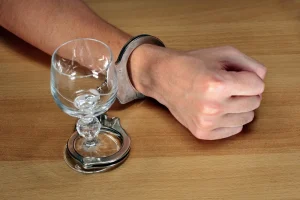
How Long Does Cannabis Stay in Your System?
By G5global on Monday, May 23rd, 2022 in Sober living. No Comments

The duration that THC and its metabolites are detectable will ultimately depend on a number of factors, including dose, strength, and individual body chemistry. In this article, we will provide a comprehensive overview of THC (tetrahydrocannabinol) detection times in urine. THC is the psychoactive compound found in cannabis, and its presence in urine is a common method for drug testing. Understanding how long THC remains detectable in urine is essential for individuals subject to drug tests and those interested in responsible cannabis use. This article will cover various factors affecting detection times, typical detection windows, and practical implications for different users.
- To administer the test, a user simply has to mix the chemicals with a particle of the suspected substance; if the chemicals turn purple, this indicates the possibility of marijuana.
- ARCannabisClinic pioneers full diagnosis evaluations, including PTSD, anxiety, and general medical evaluations, making the process smoother for patients.
How to pass a marijuana drug test

If marijuana with a higher THC potency is used, the chemical traces will remain in the body for longer periods of time. According to a 2005 review by Paul Cary, director of the Toxicology and Drug Monitoring Laboratory at University of Missouri, while detection times in excess of 30 days do occur for some, they are largely an exception. As a result, Mayo Clinic has created a carboxy-THC and creatinine ratio test in urine to facilitate using these decision ratios to determine new vs. residual use of marijuana. This test will measure both the carboxy-THC using a definitive test method and the urine creatinine.

How Long Does Marijuana Stay In Your System?
Finally, blood tests have the shortest detection window, typically only detecting THC for a few hours after use. As healthcare professionals, it is crucial to stay informed about the pharmacokinetics of substances like THC, the psychoactive component in cannabis, and their detection in the human body. This knowledge aids in discussing cannabis use and its implications with patients, particularly in contexts of medical use, substance abuse, and drug testing protocols.
- Urine tests are the most common method of drug testing for marijuana.
- The blood then carries the chemical to the brain and other organs throughout the body so the user feels the effects quicker compared to the oral route, which it takes ~1-3 hours to reach peak concentrations and feel the effects.
- Whether you’re prepping for a new job or just curious, it’s essential to know how your body processes and retains THC.
- Using a highly sensitive urine test, researchers found THC in the urine of 100 percent of frequent users and 60 to 100 percent of infrequent users.
- THC and other cannabis metabolites are removed from the body through urine, sweat, and feces.
- Think of it as the difference between a shot of espresso and a regular cuppa joe.
FAQs About Marijuana Use and Drug Tests
- The primary constituent in cannabis, THC, is illegal in many places worldwide due to drug laws.
- It is important to note that the specific policies and regulations regarding marijuana drug testing may vary depending on the jurisdiction and organization.
- “If you have a detectable level of morphine in your system and you can show you have a prescription for it, then you have a defence.
- Laboratories may use a combination of immunoassay and GC-MS to ensure reliable and accurate results.
By considering factors like BMI, gender, frequency of use, and genetics, we gain a clearer understanding of cannabis detection. The accuracy of cannabis tests continues to improve, making it essential to understand how these tests work. For example, the type of cytochrome P450 enzyme you have can affect how it modifies THC and releases it through the urine. Furthermore, people with a fast metabolism can break down THC in a shorter amount of time compared to those with a slower metabolism. Unlike alcohol, which quickly leaves the system within a few hours, marijuana can stay for a considerably longer time. If you’ve just been offered a job or have to take a drug test in the near future, here’s everything you need to know about how long marijuana stays in the body.
THC concentration in your bloodstream peaks shortly after smoking, but it rapidly decreases over the next few hours. The National Institute on Drug Abuse mentions that various factors, including the method of consumption, whether it’s a vape pen, dab pen, or good ol’ fashioned joint, can affect how quickly THC is metabolized. The amount of THC, frequency of use, and body mass index play crucial roles too.
Drug Test Calculator Menu
An older study notes a slight increase in THC levels following exercise in people who regularly use cannabis. As such, exercise right before a drug test may increase the likelihood of a positive test result. Urine and hair samples may show evidence of cannabis use several months after the fact. A blood test may detect marijuana in blood more quickly than a urine test and up to two days from consumption. However, it’s not as commonly used because THC can’t be detected in blood for as long as it can be detected in urine.
Ways to Get Delta-9 Out Of Your System Faster
- As with all laboratory tests, urine drug tests can yield false positive and false negative results.
- “Our evidence should hopefully help people to make informed decisions and policymakers to make policies that are evidence-based and tell people how long they should wait before driving,” she said.
- Urine tests are typically used in workplace drug testing or legal situations.
- Carefully counseling the adolescent and his or her family beforehand about the expectation to immediately complete random drug tests as part of the treatment plan is essential.
This study uses the term “half-life” in its biological context, which refers to the amount of time it takes the human body to eliminate half of a substance it ingests. Whether you’re a THC user or not, there can be a variety of reasons you might want to know how long delta-9 stays in your system. It’s the cannabinoid targeted by drug how long does weed stay in your system tests, since it’s the primary substance that indicates marijuana use. Still, with the right strategies in place—like hydration, exercise, and proper diet—you can help support your body in eliminating THC more effectively.
Given the current detection windows for standard cannabis tests, it’s likely you will be able to pass a urine test as long as you are not an extremely heavy user and are given sufficient advanced notice. But if your employer tests you regularly and without prior notification, perhaps it wasn’t a dream job after all. While understanding THC detection times can be useful for drug test preparation, it is essential to prioritize responsible cannabis use. Being aware of local laws and regulations, and seeking addiction treatment when needed, is crucial for promoting mental health and well-being. We looked into published scientific studies about how long does weed stay in your system.

Delta-9 vs. Weed
Urine tests are the most common drug screening forms due to their relative affordability, convenience, and effectiveness. Most urine drug tests will have a cut off of 50 nanograms per milliliter (ng/mL). The frequency of cannabis use can impact the detection window, with occasional users having a shorter window compared to frequent users.
Practical concerns in adolescent drug testing

Urine creatinine and specific gravity can be ordered together with a drug test panel. Many commercial labs also offer adulterant panels that can detect many substances added to a test in vitro. Drug detection times for different biologic specimens used in drug testing. Drug testing, when carefully collected and thoughtfully interpreted, offers a critical adjunct to clinical care and substance use treatment.

Leave a Reply